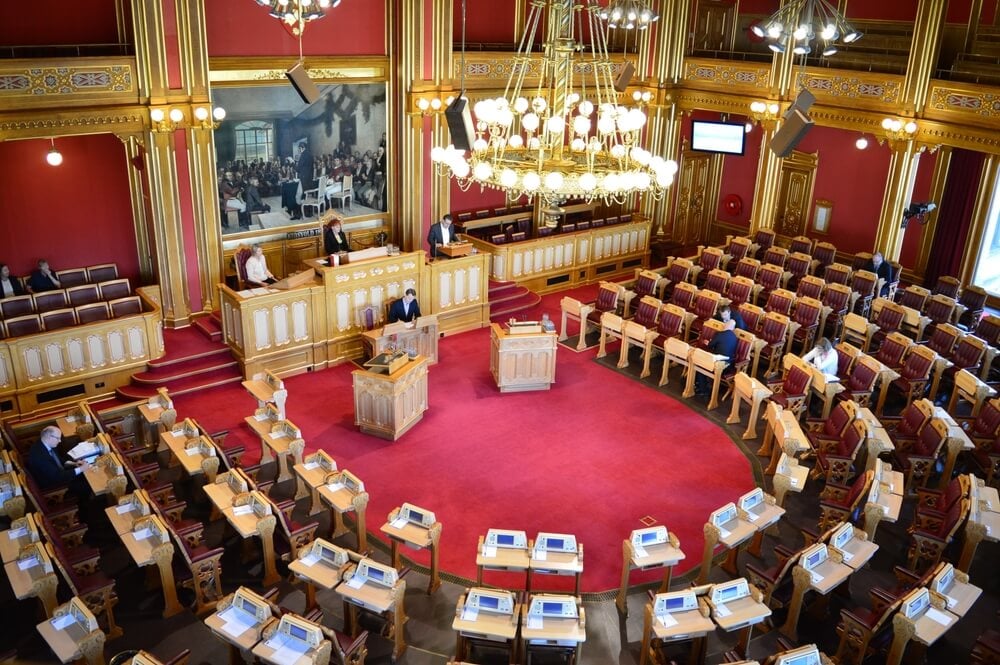Similar to NATO, which recently expanded not to the expected regions in the south and east but somewhat surprisingly to the north, the European Union could potentially expand beyond its northern borders in the future.
Just as Sweden and Finland have recently become the newest members of NATO, the potential first new member of the EU will come from the north of the continent.
The new government of Iceland, which was formed 10 days ago, has emphasised the clear goal of reopening the issue of EU membership during its term.
The Social Democrat-led government has also announced a referendum on whether EU accession negotiations should continue no later than 2027.
The possible continuation of Iceland's path to EU membership could also prompt Norway to reconsider its previous refusal to join the Union or at least fuel the debate about joining the bloc.
“We agreed that a motion in parliament be agreed upon, stating that we will have a referendum on the continuation of Iceland’s European Union accession talks and that this referendum be held no later than 2027,” said the new Minister of Foreign Affairs, Þorgerður Katrín Gunnarsdóttir.
People view this experienced liberal politician as Iceland's chief accession negotiator; understandably, if the citizens approve the continuation of negotiations in a referendum.
Increased pro-EU sentiment
There is a good chance that, after hesitating and procrastinating, Iceland will be more strongly in favour of joining the EU this time. A survey last June showed high support of around 55% for the country's accession to the Union, while three quarters want a referendum, as they see this as an important national issue.
In 2009, Iceland submitted an application for membership, and just one year later, the EU Council determined that all conditions had been met and accession negotiations could begin. However, strong public opposition to joining the Union in 2013 put Iceland's plans to join it on hold.
The European Union is waiting for Reykjavik to change its mind and has never revoked the candidate status
However, the European Union is waiting for Reykjavik to change its mind and has never revoked the candidate status. It is possible that the process will resume as early as 2025.
Icelanders' attitudes towards membership in the bloc have changed over the last ten years in favour of EU membership. The newly elected government, led by the Social Democrats, has therefore made reactivating the membership issue one of its priorities for the next four years.
“I am pro-European myself, but what we seek is not to emerge divided from the next parliamentary term. EU membership is one of those issues that has split the nation in two. I don’t want to embark on this journey unless I see overwhelming support among the public,” said Kristrún Frostadóttir, the new Prime Minister of Iceland, during the recent campaign.
Crises and the euro are driving Icelanders to the EU
The shift in Iceland is undoubtedly due to geopolitical circumstances, which also contributed directly to Finland's and Sweden's recent accession to NATO.
The global financial crisis, the UK's exit from the EU, the migrant crisis, and the Covid-19 pandemic have demonstrated that state blocs like the EU have mechanisms in place to increase their members' resilience to external shocks.
The Icelanders' motivation to turn towards the EU again is to gain entry into the Eurozone
The Icelanders' motivation to turn towards the EU again is to gain entry into the Eurozone, which would serve as a catalyst for the expansion of their domestic economy.
Political elites in Norway followed the EU discussion with considerable interest during the campaign in Iceland, as its outcome would also impact attitudes within Norway.
Norway has already refused to join the EU twice, in 1972 and 1994, in a referendum. Both times, the population found satisfaction in the security framework NATO membership provided and in accessing the common EU market through the European Economic Area (EEA), of which Norway is a member.
Will Norway follow the same path?
However, Iceland's potential entry into the EU would render Norway's membership in the EEA meaningless, as the platform would only have two non-EU members, Norway and Liechtenstein.
 Given the recent reactivation of the EU accession debate in Iceland, we can expect a debate in Norway starting in 2025 - Norwegian Parliament
Given the recent reactivation of the EU accession debate in Iceland, we can expect a debate in Norway starting in 2025 - Norwegian Parliament
In other words, Iceland's entry into the EU would put a lot of pressure on Norway to do the same, regardless of the fact that it enjoys all the benefits of cooperation with EU members through the current arrangements (common market, Schengen Area).
"In 2025, developments in Iceland could influence how Norwegian political parties and voters envision Norway's relationship with the EU in the next Norwegian parliament period. It might, therefore, be useful to consider what alternatives Norway has if Iceland reopens negotiations on EU membership—whether it happens now or later," said Per Christiansen, a professor of European law at the University of Tromsø, Norway, and a long-time judge at the EFTA Court.
Given the recent reactivation of the EU accession debate in Iceland, we can expect a debate in Norway starting in 2025, especially with the forthcoming parliamentary elections in early October.